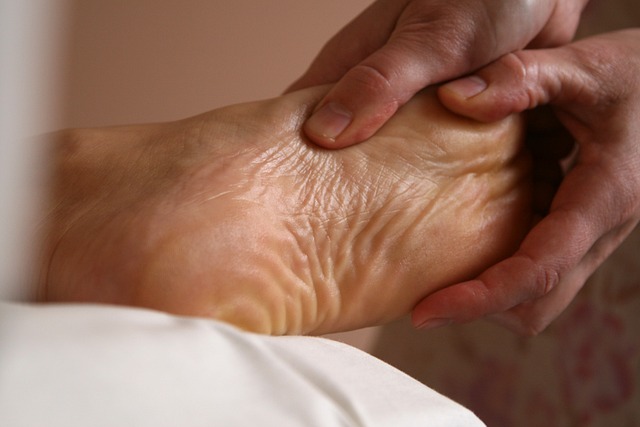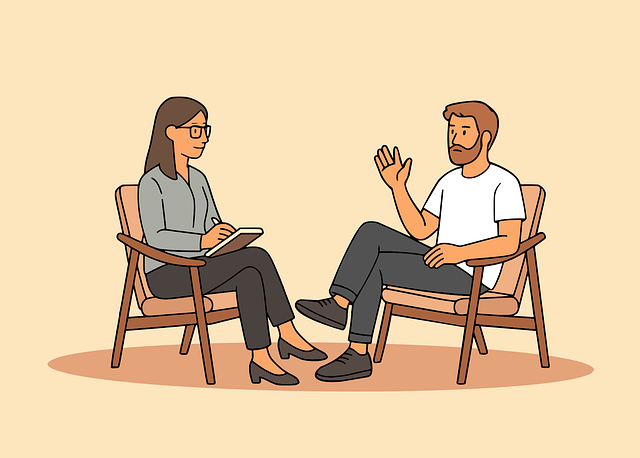Relationship therapy offers a transformative journey for couples seeking healing and reconciliation. By addressing communication issues, conflict resolution problems, and trust concerns, therapists guide partners towards deeper understanding and stronger emotional bonds. Through evidence-based methods like CBT and EFT, therapy fosters open dialogue, rebuilds shattered trust, and enhances intimacy. Setting realistic goals, integrating learned strategies, and post-therapy support are crucial for long-term success in strengthening relationships. Recognizing the value of relationship therapy demonstrates a commitment to healthy partnership growth.
Healing a strained relationship can feel like navigating uncharted territory. That’s where relationship therapy comes in, offering a safe space to explore issues, rebuild connections, and rediscover intimacy. This comprehensive guide delves into the transformative power of relationship therapy, equipping you with insights on identifying when it’s needed, preparing for your first session, understanding key techniques, and integrating lessons learned into everyday life.
Understanding the Power of Relationship Therapy

Relationship therapy is a powerful tool for couples seeking healing and renewal. By creating a safe, non-judgmental space, therapists enable partners to explore the root causes of their issues, fostering open communication and deeper understanding. Through various therapeutic techniques, individuals learn to navigate conflicts constructively, rebuild trust, and strengthen their emotional connection.
This process goes beyond mere problem-solving; it empowers couples to develop healthier patterns, enhance intimacy, and cultivate resilience. By addressing underlying problems and gaining valuable insights, relationship therapy becomes a catalyst for positive change, helping partners move from pain to healing and ultimately, a stronger bond.
Identifying When You Need Relationship Therapy

Many couples struggle with communication, conflict resolution, or trust issues, often wondering if their problems are unique. However, seeking relationship therapy is a proactive step towards mending and strengthening bonds. Recognizing the signs that your relationship could benefit from professional help is crucial.
If you and your partner have tried various strategies to improve your connection but feel stuck, experience recurring patterns of unresolved arguments, or sense a growing emotional distance, these could be indicators that relationship therapy is warranted. It’s essential to remember that seeking help is not a sign of weakness but rather a demonstration of commitment to nurturing a healthy and fulfilling partnership.
Preparing for Your First Session: What to Expect

Preparing for your first session in relationship therapy is a significant step towards healing and growth. It’s normal to feel a mix of emotions, from excitement to nervousness. To make the most of this experience, take some time beforehand to reflect on your relationship goals and what you hope to achieve through therapy. Consider writing down your thoughts, concerns, or any specific issues you’d like to address—this can help guide your initial conversation with the therapist.
During your first session, expect an inviting and non-judgmental space where you can openly discuss your relationship dynamics and challenges. The therapist will aim to create a safe environment for you to express yourself honestly. They might ask about your relationship history, current struggles, and any patterns you’d like to change. Be prepared to share your perspective and actively listen to the other person in the relationship as well; therapy is a collaborative process that requires both individuals’ commitment and participation.
Common Techniques Used in Relationship Therapy

In relationship therapy, therapists employ a variety of techniques tailored to address specific issues within a couple’s dynamic. One common approach is cognitive behavioral therapy (CBT), which helps individuals identify and change negative thought patterns and behaviors that might be contributing to relationship problems. CBT encourages active participation, fostering open communication where partners can express their feelings and work together to set realistic goals for improvement.
Another prevalent method is emotionally focused therapy (EFT), centered around improving emotional connection and regulation within the relationship. EFT guides each partner to explore and share their emotions deeply, enhancing understanding and empathy. By learning to listen and respond to each other’s emotional needs, couples can strengthen their bond and navigate challenges more effectively. These techniques, among others, offer valuable tools in the process of relationship healing.
Building Trust and Communication in Therapy

In the realm of relationship therapy, building trust and fostering open communication are cornerstone processes. When couples step into therapy, creating a safe and non-judgmental environment becomes imperative for honest exchange. The therapist plays a crucial role in facilitating this by actively listening, empathizing, and reflecting back what each partner shares, thereby encouraging vulnerability. This foundational step is vital as it enables partners to explore underlying issues, express their feelings, and understand one another’s perspectives—all essential elements for healing and growth.
Effective communication involves active participation from both individuals, who must learn to articulate their needs, desires, and concerns clearly. Through guided exercises and strategic techniques, therapy helps couples improve their conversation skills, navigate difficult topics, and resolve conflicts constructively. As trust and open dialogue take root, the therapeutic process can address the core challenges plaguing the relationship, paving the way for profound transformation and lasting healing.
Setting Realistic Goals for Healing

In any journey towards healing, setting realistic goals is a cornerstone for success. In the context of relationship therapy, these goals are tailored to address specific issues within the partnership. They could range from improving communication patterns, establishing healthier conflict resolution strategies, to rebuilding trust and intimacy. It’s vital to have these goals aligned with what both partners believe achievable and beneficial for their union.
Therapy isn’t about quick fixes; it’s a process that requires commitment and patience. Realistic goals provide a roadmap, offering clear milestones to track progress. They empower individuals and couples to focus on tangible changes while also acknowledging the complexity of emotional healing. By setting achievable targets, therapy becomes a collaborative effort, fostering a safe space to learn, grow, and ultimately strengthen the relationship.
Integrating Lessons Learned into Daily Life

After engaging in relationship therapy, it’s crucial to translate the insights and lessons learned into actionable steps for everyday life. This integration process involves consciously applying the therapeutic techniques and strategies discussed during sessions. For instance, if certain communication patterns were identified as problematic, couples can now practice active listening and open dialogue, fostering a deeper understanding between them.
By incorporating mindfulness exercises or conflict-resolution tactics taught in therapy into their routine, partners can navigate future challenges with enhanced emotional intelligence and resilience. This continuous effort to implement therapeutic insights solidifies the healing process, allowing the relationship to flourish and grow stronger over time.
Measuring Success and Continuing Support

Measuring success in relationship therapy is a multifaceted process that goes beyond simply resolving conflicts. It involves tracking improvements in communication, emotional intimacy, and conflict resolution skills over time. Therapists often use standardized assessments or personalized metrics to gauge progress, ensuring that both partners feel heard and understood. These tools help identify areas where the couple excels and aspects that still require work, allowing for targeted interventions.
Continuing support after formal therapy is crucial for maintaining healthy relationships. Many therapists offer follow-up sessions, provide resources for ongoing growth, or recommend community support groups. Regular check-ins ensure that couples can navigate future challenges with newfound tools and strategies. This ongoing support acts as a reinforcement, fostering lasting positive changes in their relationship dynamic.
